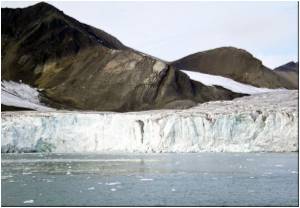Mankind needs far greater adaptation to global warming than has been the case so far.

“That average rates of environmental change in the oceans and on land are similar is not such a surprise, but averages deceive” cautions Henry Gholz, program director in the Division of Environmental Biology, National Science Foundation (NSF), which funded the research.
The new study shows that rates of change are at times greater in the oceans than on land–and as complex as the currents themselves. The challenge is to adapt to such a complex phenomenon.
Greenhouse gases have warmed the land by approximately one degree Celsius since 1960. That rate is roughly three times faster than the rate of ocean warming. These temperatures have forced wild populations to adapt–or to be on the move, continually relocating.
Although the oceans have experienced less warming overall, plants and animals need to move as quickly in the sea as they do on land to keep up with their preferred environments.
Surprisingly, similar movement rates are needed to out-run climate change. On land, movement of 2.7 kilometers (1.6 miles) per year is needed and in the oceans, movement of 2.2 kilometers (1.3 miles) per year is needed.
Advertisement
“These results provide valuable insights into how climate will affect biological communities worldwide,” says David Garrison, director of NSF’s Biological Oceanography Program.
Advertisement
“With climate change we often assume that populations simply need to move poleward to escape warming, but our study shows that in the ocean, the escape routes are more complex,” says ecologist Lauren Buckley of the University of North Carolina at Chapel Hill, also a co-author of the paper.
“For example, due to increased upwelling, marine life off the California coast would have to move south [rather than north] to remain in its preferred environment.”
“Some of the areas where organisms would need to relocate the fastest are important biodiversity hot spots, such as the coral triangle region in southeastern Asia,” says lead author Mike Burrows of the Scottish Association of Marine Science.
Whether by land or by sea, according to these results, all will need to be on the fly.
Source-Medindia






